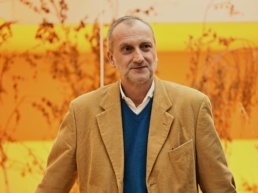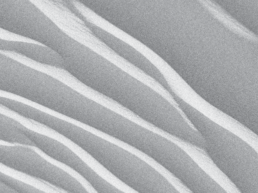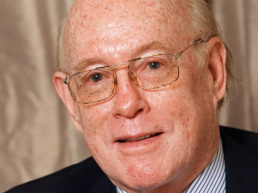Manuela Silva, psychiatrist and researcher at Hospital de Santa Maria, is the winner of the 2nd edition of the FLAD Science Award Mental Health of the Luso-American Foundation for Development (FLAD). The researcher will receive 300,000 euros, the largest award in the area of Mental Health in Portugal, to develop an innovative psychological intervention project for people with severe mental illness in the post-hospitalization.
The FLAD Science Award Mental Health is an unprecedented support for young researchers in Portugal to develop new lines of clinical research in Mental Health, from prevention to treatment and rehabilitation. FLAD’s goal is to contribute to the quality of life of people suffering from mental disorders, at a time when Mental Health needs are even more evident.
The award is an annual initiative that funds young researchers with merit projects in collaboration with research centers in the United States, totaling 300,000 euros over 3 years. The initiative is recognized by The Minister of Health, Marta Temido, the World Health Organization (WHO) and the United Nations High Commissioner for Human Rights.
Manuela Silva is coordinator at the Lisbon Institute of Global Mental Health, the Comprehensive Health Research Centre of NOVA Medical School, psychiatrist and coordinator of the psychosocial rehabilitation service of the Lisbon Norte University Hospital Center, member of the College of Psychiatry of the Order of Physicians and representative of the World Federation for Mental Health at the World Health Organization (WHO).
About the project
The winning project – Effectiveness of the Critical Time Intervention-Task Shifting (CTI-TS) model for persons with serious mental illness discharged from inpatient psychiatric treatment facilities in Portugal – will consist of a randomized, monitored clinical trial that aims to evaluate the effectiveness and possibility of implementation in Portugal of an intervention aimed at people with severe mental illness in the post-hospitalization period.
The reorganization of mental health care – to reduce the dependence of hospitals and be more inserted in the community – has not effectively served people with severe mental illness after the departure of a period of hospitalization. The unavailability, difficult access and isolation of these people leads to them not having the support and monitoring they need – 70% do not go to the first consultation – leading to a situation of “revolving door” that leads them back to a situation of hospitalization, with potentially more serious consequences.
“The problem, and that is why there have been changes in the way mental health care is organised that is sought to get out of hospitals and be more in the community, is that in the case of people with severe mental health they are soon starting to fail. What often happens is that people are hospitalized, then leave the internment and the connection to the community or the follow-up they need in consultation, to look for the various supports they need begins to fail very easily, because they are not yet very available, access is not always very easy, and because they are people who are often alone. They are isolated and have very few people beside them to help them find the various care they need.” – Manuela Silva
To address this issue, the researcher will carry out a clinical trial that aims to test an intervention system used in countries such as the United States, The United Kingdom and Australia, where teams of two people are set up to monitor these patients for 9 months. These people will be hired and trained by the team responsible for the project, using a manual from Columbia University, which will be translated and adapted to the Portuguese reality, under this project.
One of the members of this team will necessarily be a person with severe mental illness, but in a situation already of recovery or effective stabilization. The aim is not only to extend the number of people who could do this follow-up in a scenario of scarcity of mental health professionals, but also to achieve two essential objectives: a relationship of trust with patients who will be accompanied by people who have had similar experiences; and the empowerment of people with mental health diseases, crucial for their recovery and self-esteem.
“These people who would accompany people with severe mental illness would always be people who have already had mental illness. They would be a pair consisting of a person who has mental illness and who is recovered or stabilized, who has already had his recovery process more instituted, and another person who moves well in the community and who does not have to be connected to mental health, but who may be a health person, or who is connected to an IPSS, who knows well the resources of the community.” – Manuela Silva
The project will be carried out in three services of Lisbon: Hospital de Santa Maria; Department of Psychiatry, Beatriz Ângelo Hospital; Lisbon Western Hospital Center. In each of these services, there will be two teams, which will accompany 10 to 12 people with severe mental illness for a period of 9 months. At the end of these 9 months, an evaluation will be made, which will be repeated at 18 months to understand the evolution of the effects at the end of the first period of 9 months.
“An evaluation of the baseline will be made, which aims to understand how it is quoted by itself using quality of life scales, assess the needs they perceive, but also how the symptomatology evolved and the perception of stigma. Then they are followed by peers, the intervention ends at nine months, an evaluation is made. It is intended that the results remain in time. The goal is not for people to be dependent on this pair, but to help make a transition to the structures that already exist and that will continue on the ground.” – Manuela Silva
Congratulations, Manuela Silva!


